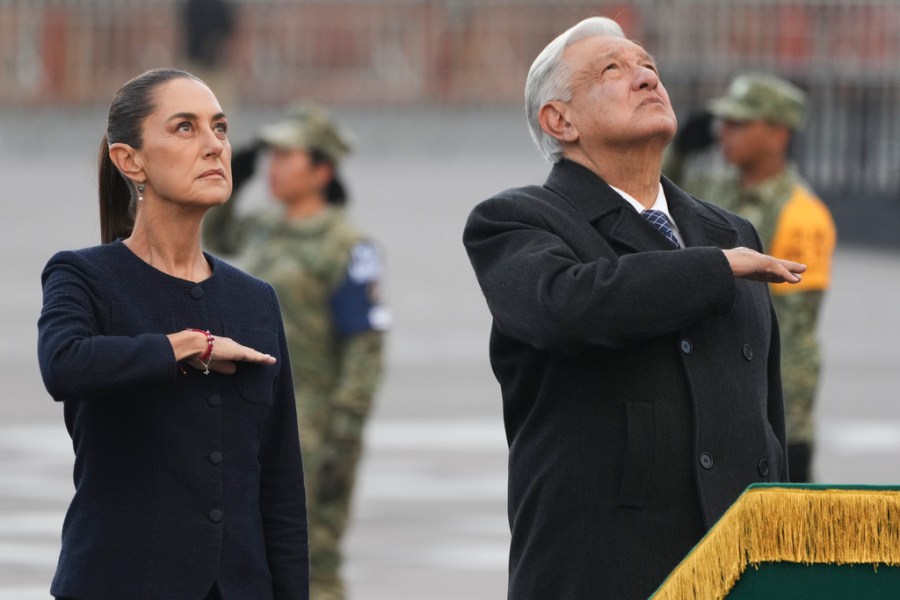
For 30 years, the Soviet Union was the main supporter of Cuba’s communist dictatorship, pumping into it more than $29 billion worth of money, weapons, food, oil and technology — a debt that Russia ultimately wrote off. In the 1990s, Hugo Chavez’s Venezuela became Cuba’s new lifeline for Cuba, contributing $35 billion over 15 years in oil alone.
With Venezuela in shambles, Mexico, the main U.S. trading partner, has become Cuba’s new lifeline, sending food, oil and anything else it can to support the longest-standing dictatorship in the Americas. Yet nothing is enough. Nothing can rescue Cuba’s failed communist economy.
Mexico promotes a nonsense diplomacy in favor of Cuba. In 2023, Mexico even blackmailed the U.S. by saying that it would cooperate on the migration crisis but would also like the U.S. to resume talks with Cuba. In 2022, Mexico rejected a presidential invitation to the Summit of the Americas in Los Angeles, solely because the dictatorships of Cuba, Nicaragua and Venezuela were not invited.
Although few Americans have noticed, Mexico is experiencing an extremely violent period. In less than a month, two car bombs have exploded, a priest was murdered and a mayor was decapitated. States such as Sinaloa have seen nearly 60 straight days of chaos and crime. Despite all this, Mexico’s new president, Claudia Sheinbaum, has made the crisis in Havana her main priority.
In 2023, then-President Andrés Manuel López Obrador guaranteed 5.4 million barrels of oil to Cuba, a national record. The supply, valued at $391 million, is a solidarity support to the dictatorship that has 1,100 political prisoners and has gone 65 years without free elections. Those are the values that Mexico’s government evidently honors and admires.
Without even blushing, Sheinbaum promised Cuba “everything” it wants, thus unwittingly showing that the Cuban embargo is a lie. Her shipment of 400,000 barrels of oil and at least 100 tons of meat to Cuba may or may not reach its people.
The Cuban regime blames the blackouts on a combination of lack of oil supply and obsolete machinery. The main problem is not mentioned: poor management, confiscations of private property and an unfriendly investment climate.
Although the Mexican government has maintained an opaque management of cooperation with the island, Havana has paid Venezuela for its oil with Cuban doctors’ slave labor and military advisors. A similar cooperation scheme could result in Mexico as well.
The sick solidarity with Cuba punishes the people of Mexico. In May Mexico experienced one of the largest blackouts in its history, affecting Puebla, Guanajuato, Chiapas, Tamaulipas and Oaxaca. This bears an uncanny likeness to Venezuela before its collapse.
In 2023, Mexico went from casual donations to Cuba to being its second largest oil supplier at 13,000 barrels per day. Mexico’s solidarity surpassed that of Russia (12,000 barrels) and perhaps soon Venezuela as well (55,000 barrels).
Castro’s dictatorship destroyed agricultural and livestock production. A country that exported food to the world today begs for it. The regime buys $2 billion in basic products, but corruption and mismanagement generate poverty and scarcity.
Mexico supports Cuba while dynamiting all the democratic foundations of its country. In record time, approved a judicial reform, militarized security and eliminated the agencies in charge of governmental transparency.
Let it be clear. Claudia Sheinbaum’s support is for the dictatorship, not for the Cuban people. If Mexico supported the people, it would at least condition this aid on the release of the 1,100 political prisoners, free elections and an end to torture, the death penalty and forced disappearances in Cuba.
Dictatorships like Cuba, Nicaragua and Venezuela remain standing not only thanks to their brutality and repression, but also because of the shameful support of countries like Mexico that despise democratic values but enjoy democracy’s abundant benefits.
Arturo McFields is an exiled journalist, former Nicaraguan ambassador to the Organization of American States and former member of the Norwegian Peace Corps.














